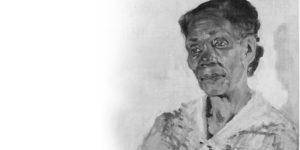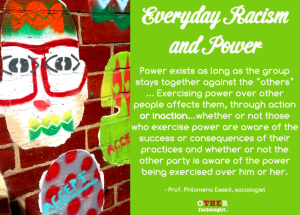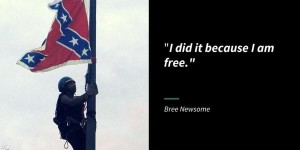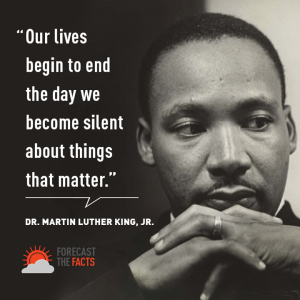oppression
Dangerous Ambiguities
February 10, 2020‘As a nation, we have begun to float off into a moral void, and all the sermons of all the priests in the country (if they preach at all) are not going to help much.
We have got to the point where the promulgation of any kind of moral standard automatically releases an anti-moral response in a whole lot of people. It is not with them, above all, that I am concerned but with the ‘good’ people, the right-thinking people, who stick to principle, all right, except where it conflicts with the chance to make money.
It seems to me that there are very dangerous ambiguities about our democracy in its actual present condition. I wonder to what extent our ideals are not a front for organized selfishness and systematic irresponsibility.
If our affluent society ever breaks down and the facade is taken away, what are we going to have left?
-Thomas Merton, 1961
Image credit: Anna Washington Derry (detail), Laura Wheeler Waring, 1927, Smithsonian American Art Museum
The vast majority of people throughout history have been poor, disabled, or oppressed in some way (i.e., “on the bottom”) and would have read history in terms of a need for change, but most of history has been written and interpreted from the side of the winners.
Every viewpoint is a view from a point.
We must be able to critique our own perspective if we are to see a fuller truth.
Liberation theology—which focuses on freeing people from religious, political, social, and economic oppression—is mostly ignored by Western Christianity. Perhaps that’s not surprising when we consider who interpreted the Scriptures for the last seventeen hundred years. The empowered clergy class enforced their own perspective instead of that of the marginalized, who first received the message with such excitement and hope. Once Christianity became the established religion of the Roman Empire (after 313), we largely stopped reading the Bible from the side of the poor and the oppressed. We read it from the side of the political establishment and the usually comfortable priesthood instead of from the side of people hungry for justice and truth. Shifting our priorities to make room for the powerless instead of accommodating the powerful is the only way to detach religion from its common marriage to power, money, and self-importance.
When Scripture is read through the eyes of vulnerability—what we call the “preferential option for the poor” or the “bias from the bottom”—it will always be liberating and transformative. Scripture will not be used to oppress or impress. The question is no longer, “How can I maintain the status quo?” (which just happens to benefit me), but “How can we all grow and change together?” Now we would have no top to protect, and the so-called “bottom” becomes the place of education, real change, and transformation for all.
Dorothy Day (1897–1980): “The only way to live in any true security is to live so close to the bottom that when you fall you do not have far to drop, you do not have much to lose.” [1] From that place, where few would expect or choose to be, we can be used as instruments of transformation and liberation for the rest of the world.
-Fr Richard Rohr
Dorothy Day, Loaves and Fishes: The Inspiring Story of the Catholic Worker Movement (Orbis Books: 1997), 86.
❥
October 27, 2016Independence Day
July 4, 2015In light of the recent skewed definition of ‘religious liberty’:
Written by spiritual leader Ernest Holmes – published around the middle of the 20th century:
‘We all wish to be free, but at the same time we should realize that liberty is not license (to oppress). To say that we are free with the freedom of God does not mean that we are free to do that which contradicts the Divine nature. We are free only in that freedom that God is – – freedom to be alive, to enjoy living, to enter into the activities of everyday living with enthusiasm and interest. We are free to love and to be loved. We are free to give full and complete expression to every capacity we possess, provided this freedom harms no one and hurts no thing. This is freedom enough because if we were free to do that which is destructive we should ultimately destroy ourselves. And, in so doing, we would not only deny but would defame the nature of Divinity Itself. In Divine will we know there is scope enough for self-expression – – plenty of room to move around and express life to its fullest’. For all beings…regardless of race, creed, sexual or gender orientation, political interests, and economic status.



